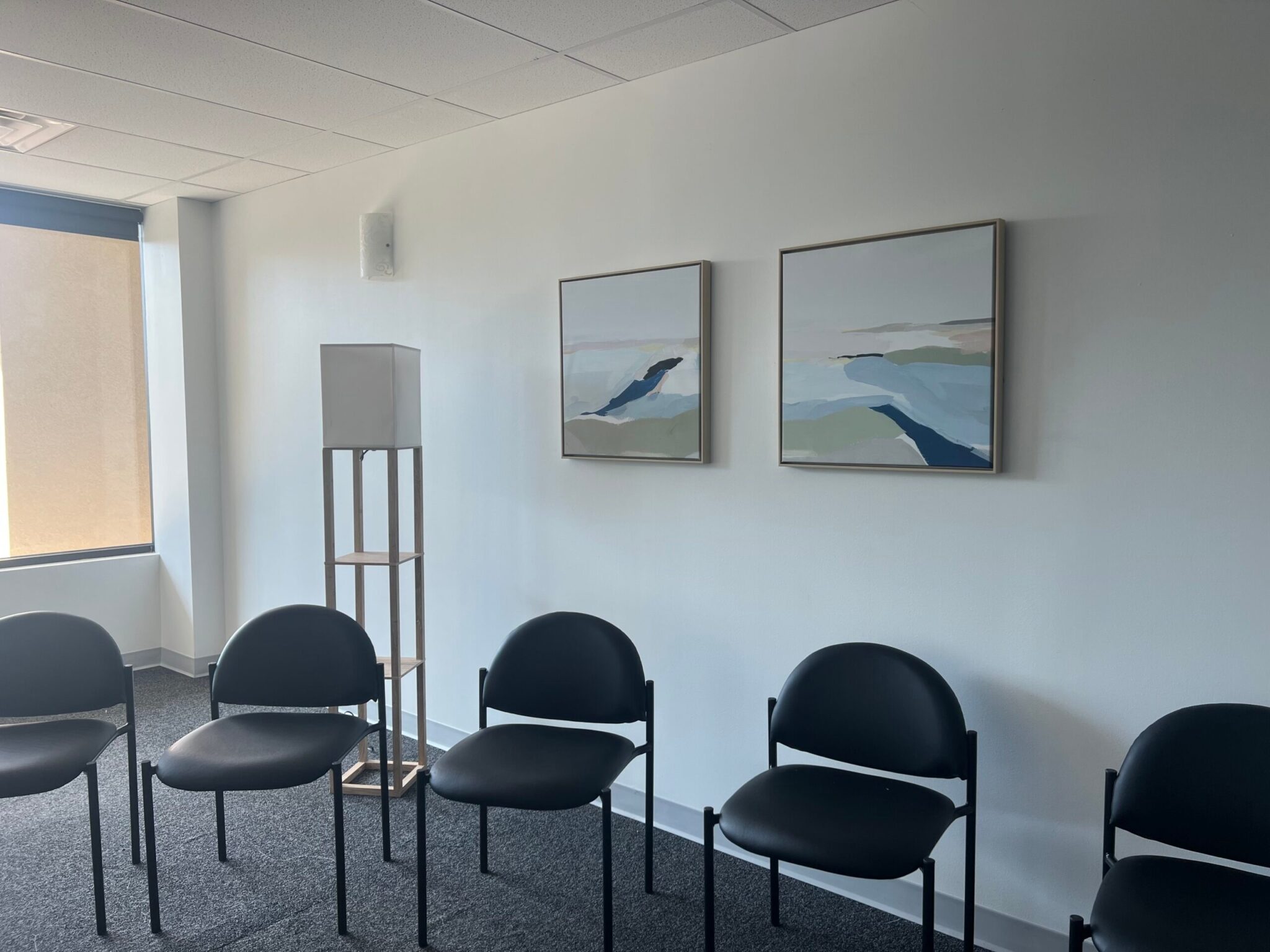Contents
At NoVu Wellness, we understand that managing one’s mental health is essential to overall well-being. Whether you seek support for depression, anxiety, bipolar disorder, ADHD, or other mental health concerns, we create a safe, non-judgmental, and welcoming environment to explore your thoughts and emotions with our Atlanta psychiatry and medication management services.
Learn more about our mental health services, or call us now at 706-740-9005.
What Is Psychiatry?
Psychiatry is a medical specialty focusing on preventing, diagnosing, and treating mental health disorders. Psychiatrists are medical doctors who have undergone additional training in understanding and addressing psychological disturbances that affect an individual’s behaviors, emotions, thoughts, and overall well-being. Through various assessment tools and treatment approaches, psychiatrists help individuals navigate their mental health challenges to achieve improved quality of life.
What Is Medication Management?
Medication management is the process of using medications to treat mental health disorders that are carefully monitored and adjusted as needed. It involves working closely with a psychiatrist to develop an individualized medication plan that addresses specific symptoms and needs.
During medication management sessions, the psychiatrist will conduct thorough assessments to determine the most appropriate medications for addressing mental health concerns. They will consider factors such as a person’s medical history, current symptoms, possible side effects, and potential interactions with any other medications they may be taking.
Once a medication regimen is established, regular follow-up appointments are scheduled to assess its effectiveness and make any necessary adjustments.
What Happens During a Psychiatry Session?
During a psychiatry session, one can expect to converse openly and honestly with a psychiatrist about their mental health concerns. These sessions typically involve an initial evaluation where the psychiatrist gathers information on symptoms, medical history, and relevant life experiences.
The psychiatrist may use diagnostic tools or assessments to understand their condition better and make an accurate diagnosis if needed. They will ask how these issues impact one’s daily life, relationships, work/study performance, and overall well-being.
The psychiatrist will create a personalized treatment plan based on this comprehensive assessment. This may include therapy options such as cognitive-behavioral therapy (CBT), dialectical behavior therapy (DBT), or other evidence-based approaches. If medication is deemed necessary, the psychiatrist may discuss medication options and explain their potential benefits and side effects.
The psychiatrist will closely monitor progress throughout subsequent sessions, adjust medications if needed, and provide ongoing support. They will also help develop coping strategies, explore the underlying causes of symptoms, and help the person work towards achieving their mental health goals.
Ultimately, a psychiatry session is a safe space where people can openly express themselves without judgment and receive professional guidance to manage mental health concerns effectively.
How Can Psychiatry Help My Mental Health?
Psychiatry can provide invaluable support in managing and improving your mental health, including:
- Accurate Diagnosis: A proper diagnosis is crucial for understanding the underlying causes of your symptoms and tailoring an effective treatment plan.
- Medication Management: Psychiatrists are trained to prescribe medications that target specific symptoms associated with mental health disorders.
- Therapy Recommendations: Alongside medication management, psychiatrists often recommend therapy as part of a comprehensive treatment plan.
- Holistic Approach: Psychiatrists take a holistic approach to mental health care by considering all aspects of your life that may contribute to your well-being.
- Crisis Intervention: In times of crisis or acute distress like suicidal thoughts or severe panic attacks, psychiatrists are equipped to provide immediate support and intervention.
- Long-Term Support: Regular sessions with a psychiatrist allow for consistent monitoring of progress, adjustment of treatment plans if necessary, and exploring new strategies to enhance your well-being.
How Do I Know I Need to See a Psychiatrist?
Deciding to seek help from a psychiatrist is a personal decision, but there are certain signs and symptoms that indicate it might be beneficial for you, such as:
- Persistent Mental Health Symptoms
- Impacts/Interference with Daily Functioning
- Difficulty Managing Emotions
- Trauma or Significant Life Changes
- Addiction and Mental Health Issues
- Compulsive Behaviors
- Increased Risk-Taking Behaviors
Remember, seeking help from a psychiatrist does not mean you are weak. It takes courage and self-awareness to recognize when additional support is needed.
What Is the Difference Between Psychiatry and Psychology?
Psychiatry and psychology are both mental health professions, but they differ in several ways.
Medical Degree:
Psychiatrists are medical doctors who have completed medical school and specialized training in psychiatry. They can prescribe medication, perform physical examinations, order laboratory tests, and approach mental health from a biological perspective. While psychologists will have doctorate degrees, they are not medical doctors, nor do they attend medical school.
Focus:
Psychiatry primarily focuses on diagnosing, treating, and managing mental illnesses using various therapeutic approaches along with medications. Psychology focuses on understanding human behavior and cognition through research, assessment techniques, and therapy.
Treatment Approach:
Psychiatry approaches mental health from a medical perspective, considering biological factors and utilizing medication management as part of treatment and therapy. Psychology provides therapy and counseling services to help individuals understand and navigate their thoughts, emotions, behaviors, and relationships.
Training Duration:
To become a psychiatrist, one must complete medical school, followed by specialized training in psychiatry. Psychologists usually pursue a psychology doctoral degree, which generally takes 5-7 years of study, including a supervised clinical training component.
Other Services We Provide
In addition to Atlanta psychiatry and medication management, at Novu Wellness, we offer a range of other services to support mental health as part of a customized treatment plan:
Begin Atlanta Psychiatry & Medication Management Services Today
Take the first step towards improved mental health with Atlanta psychiatry and medication services at Novu Wellness. Our dedicated team of mental health professionals is ready to support you on your journey to improved mental health and well-being. Schedule an initial consultation by contacting us today.
Treatment Philosophy
At Novu Wellness, we believe that each individual suffering deserves mental health recovery. Our specialists work with each client using a trauma-informed approach to help you manage and recover from the symptoms of mental health disorders.
Meet Our Team
Our mental health specialists have years of experience in treating the debilitating symptoms of mental health disorders and can help you live a life full of possibility.




